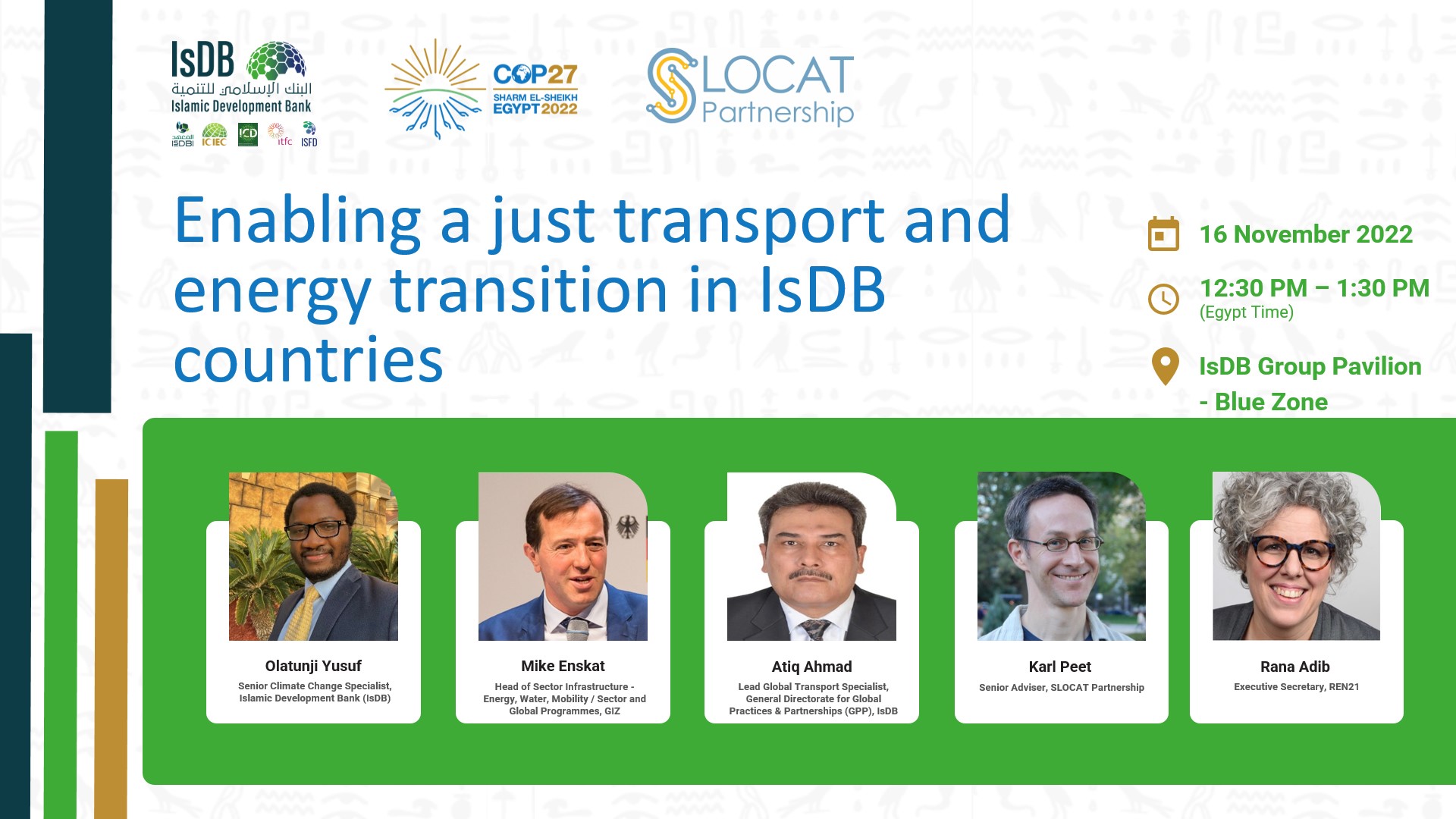
Enabling a just transport and energy transition in IsDB countries
Time & Date of Event
12:30 PM to 1:30 PM on Wednesday, 16th of November 2022
Event Overview
Strengthening the transport-renewable energy nexus can support two complementary objectives: phasing out fossil fuel subsidies by governments and fossil fuel financing by development banks, and significantly scaling up use of renewable energy for transport.
Global energy subsidies were estimated at USD 5.2 trillion (or 6.5% of global GDP) in 2017. Progress toward subsidy reform is further challenged by the billions of dollars committed to fossil fuels in pandemic recovery measures.
At the same time, progress with deployment of renewable energy for transport is slow, while growth in transport energy demand is rapid. Only 3% of energy in the transport sector is provided by renewables, with biofuels accounting for 90% and renewable electricity accounting for 10%.
A just energy transition will only be possible with a sustainable transport energy transition. Aligning transport and energy supply and demand will deliver win-win solutions to producers, consumers and policymakers. Phasing out transport fuel subsidies will enable transformation with the greatest socio-economic, environmental and health benefits at the lowest cost for individuals. And countries pursuing fossil fuel phase-out strategies will benefit from redistributing saved subsidy expenses to reduce negative impacts on the most vulnerable populations.
Challenges to a just energy transition in many IsDB countries include rising motorisation rates, lock-in effects of petroleum-driven transport systems, and lack of equivalent employment opportunities in clean energy and transport. Opportunities toward JET in many IsDB countries include increasing urbanisation rates, abundant renewable energy potential, and regional action to reduce dirty vehicle imports.
Currently, IsDB member countries are demonstrating leadership in low-carbon transport commitments among second-generation NDCs, with member countries accounting for 6 of the top 16 countries in the NDCs Hall of Fame by SLOCAT
Event Outcomes
- Broader awareness of transport-energy best practices among IsDB member countries, that can be further highlighted in South-South and South-North exchanges.
- More ambitious and comprehensive transport and energy commitments in next-generation Nationally-Determined Contributions and Long-Term Strategies.
- Increased collaboration among transport, energy, and finance ministries, leading to more integrated planning of transport infrastructure and services.
- Innovative approaches to job creation that provide equitable financial compensation with improved quality of life, reduced workplace risks, and reduced fossil fuel imports.
- Expanded project pipelines that integrate renewable energy generation with low-carbon transport systems, leading to broader economic, environmental and social benefits.
- Increased matchmaking among countries, donors and NGOs to provide technical and financial resources to translate transport ambition to project implementation.
